Editor’s note: Two years into the pandemic, artists are charting new paths forward. Across the Bay Area, they’re advocating for better pay, sharing resources and looking out for their communities’ well-being. Welcome to Our Creative Futures, a KQED Arts & Culture series that takes stock of the arts in this unpredictable climate. Share your story here.
Oakstop Nurtures An Ecosystem of Black Artists and Entrepreneurs

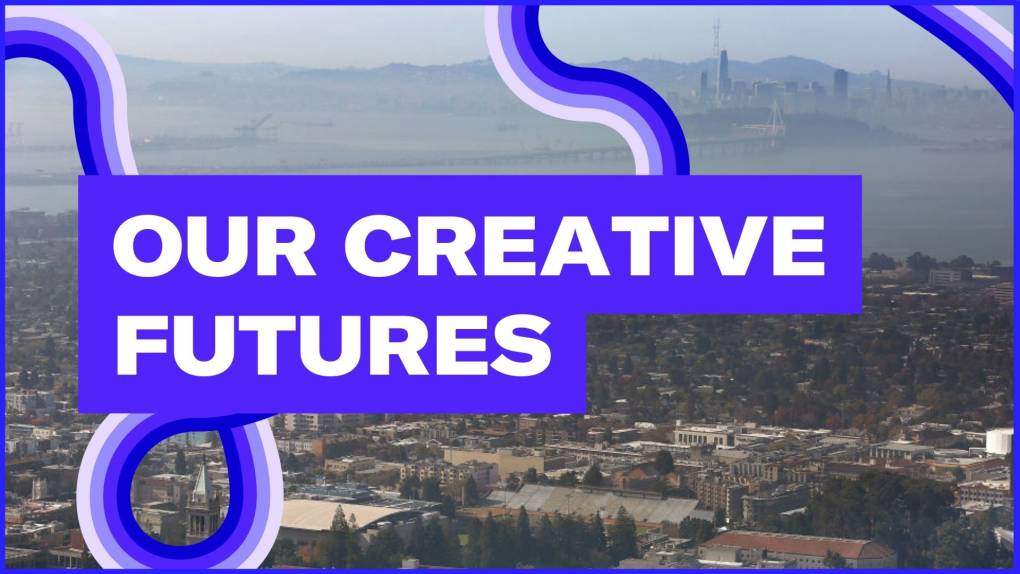
In 2014, Trevor Parham had this idea. He wanted to create a service that provides artists—specifically Black artists in Oakland—with the space to be creative entrepreneurs. If they needed a location for an event for a couple of hours, a coworking space for a few months or even a full office for a long-term project, they could turn to his organization, Oakstop.
The business’ first footprint was a 4,000 square-foot, second-story coworking space at 1721 Broadway. Eight years later, Oakstop now operates out of multiple floors in that building, as well as four other spaces in Oakland and one in Richmond. Parham built the organization on the idea of “metabolizing the high cost of real estate, and providing it back to the community at rates they can afford,” he says. He saw early success, made some notable advances during the pandemic and is now eyeing further expansion.
How does it feel to see the organization’s growth? “It feels right. It feels just,” Parham says.
He believes this is something that the Black artists who call Oakland home should’ve always had. That statement stands out in the face of the overall history of this country. And more specifically, the recent history of this region, where a number of elements, including predatory housing loans, exorbitant rents and the influx of tech workers, have contributed to driving working class Black people out of Oakland, leading to drastic demographic shifts.
In response, Parham says Oakstop is doing what it’s supposed to do. Under the Oakstop umbrella, creatives of diverse backgrounds are finding a place to plant their roots and grow. On a higher level, the organization is positioning itself to push back against oppressive forces that have threatened the very culture that makes Oakland, Oakland.
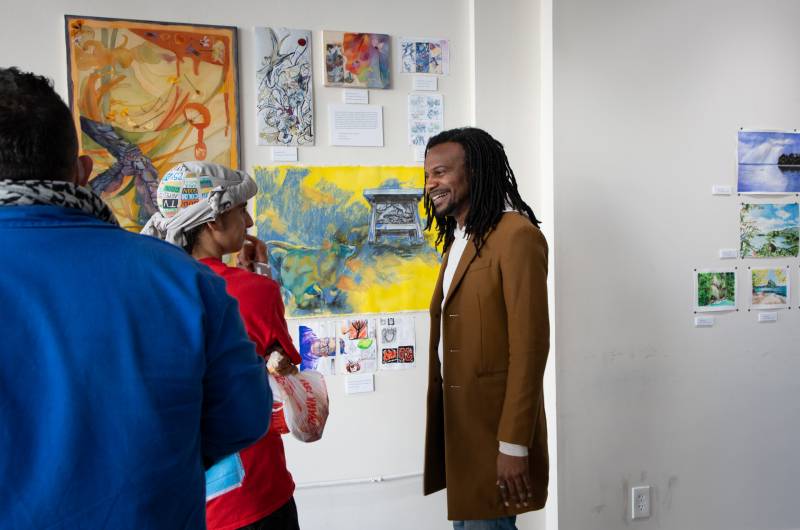
Parham has seen it all unfold. He’s an Oakland kid who has deep roots here.
“The home I lived in when I was first born burned down in the ’91 fire,” says Parham over the phone. Because he can’t go to one specific structure and say, “This is the house I grew up in,” he looks at the entire area as his home.
“Perhaps,” Parham says, “that’s now why our business is spread across so many structures.”

A Network of Artists Grows
And inside of Oakstop’s structures, estheticians have debuted new calendars, podcast hosts have become acquainted with one another, and aerosol artists have gotten decked out in their flyest attire and taken photos while celebrating their accomplishments. A center for LGTBQ+ youth has expanded, a monthly open mic has found a home, and numerous individuals and organizations have benefitted.
“I believe I might’ve technically been the first member of Oakstop,” says singer and multi-talented creator Jennifer Johns, who’s known Parham since “Jesus was a boy.” She recalls helping Parham, a longtime family friend, paint the walls of the space and move furniture. In regards to Oakstop and Parham’s recent growth, Johns says, “The model he’s creating will be useful for folks around the country, and the world… He’s just getting started, I think folks should just sit back and watch.”
Another early occupant of the space is award winning visual artist James Gayles, whose watercolor portraits of African American luminaries evoke stardust, the ocean breeze and other elements of the universe. He says, “Oakstop typifies Oakland. It brings people together.”
Echoing that sentiment is filmmaker and writer Cheo Tyehimba Taylor, whose work often delves into the topics of Black love, the criminal justice system and the coming of age experience of African American men. He’s also the curator behind the ongoing Summer Films Showcase across town at East Oakland’s Black Cultural Zone. Tyehimba Taylor has had multiple stints working out of Oakstop’s 1721 Broadway building, during which he’s collaborated with film editors and social media creators who were already in the shared working space.
On top of the networking, Tyehimba Taylor says the ability to barter creative services in exchange for a lower rent is something that he and other artists have benefited from. “Trevor is an artist himself,” says Tyehimba Taylor, noting Parham’s background in design, as well as his experience in the realms of philanthropy and social justice organizations. “He’s the right kind of person to be in the coworking rental space for creatives. … A lot of the time, those people aren’t artists, they don’t understand how we make a dollar out of fifteen cents.”
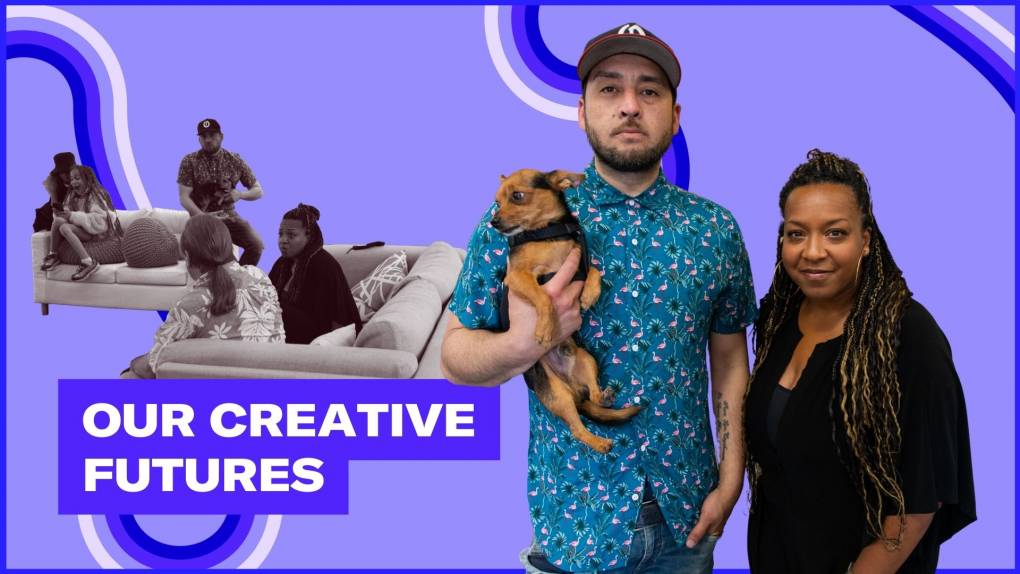
Oakstop’s prices range from $50 per month for basic membership to the coworking space to north of $3,000 for particular office rentals. Event space can range from $30 to $300 an hour. And Parham says those numbers are flexible. He hasn’t run into anyone who fundamentally disagrees with the business model or the approach.
When it comes to the contentious idea that African Americans can achieve liberation through economics, he says, “It was economics that got us in this position in the first place… The tool to undo our lack of liberation is economics.”
But beyond the business philosophy, it’s the relationships and reputation that have carried Oakstop.
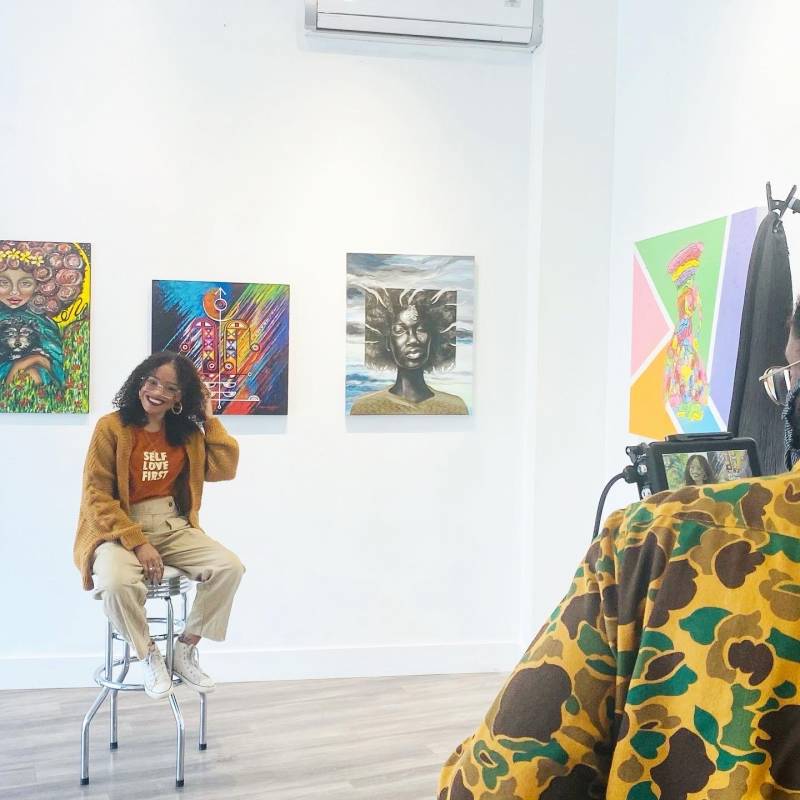
Visual artist Brette Sims attests to that. In 2014 she contacted Parham about his space. At the same time, unbeknownst to her, her father met Parham and was talking to him about Sims’ work. The result has been a decade-long partnership where Parham has allocated coworking space, assisted in mounting and selling her work—specifically her colorful psychedelic series of paintings, Alice in Hennyland. He even helped write the description cards that accompany her artwork.
“Black artists, a lot of us, we create from the bottom of our hearts,” says Sims, “but too often, we’re not given the space and the recognition we deserve.” The founder of STUK Designs, a nonprofit that empowers young women through art, Sims says she’s benefited from taking notes on the business model Parham has created. After mentioning how racist and sexist the art world can be, Sims says, “Oakstop is a space that grants us opportunities that we never would have.”
“It’s motivating to know that we’ve been able to tap into a network of people who want to build,” Parham says. “It’s important for us to create institutions where people feel that it resonates with their whole soul.”
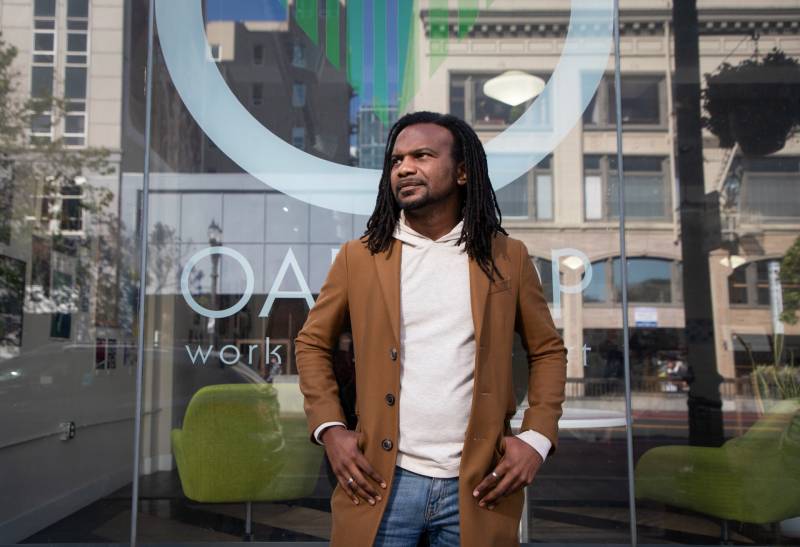
Expanding Oakstop’s Footprint
After its founding in 2014, the original footprint of Oakstop grew from 4,000 square feet to 24,000 over the course of a few years. In April 2018, Parham and his team acquired a space on 14th Street between Alice and Harrison Streets. The building has three floors and a basement, but they only occupy the second and third floor, a total of 10,000 square feet.
The third location came in April of the following year. Parham and his team thought a building adjacent to Richmond BART would make a good spot for a cafe, given the foot traffic that comes through the station. But the pandemic hit, BART’s ridership plummeted and they had to pivot.

“We opened last summer with soup, salads and sandwiches,” says Free Brown, owner of Vibe Bistro, a “second chance employer” that works with people who are formerly incarcerated. The cafe quickly made alterations after its opening, turning the eatery into more of a “grab-and-go” venue. It’s something they’re going to keep, and something that Oakstop supports.
Brown, a therapist by trade, doesn’t look at herself as a creative at all, but says Oakstop is able to reach beyond art to work with a variety of professionals. “They work with chefs, therapists, growers and all kinds of things,” says Brown. “It’s not just art on the walls.”
And sometimes the art is the walls.
Downtown Oakland’s beautiful California Ballroom, an Art Deco building that was erected nearly 100 years ago, fell under the management of Oakstop in the fall of 2020. They officially started hosting regal galas and formal events there in January of 2021.
Around the same time Parham and Elisse Douglass started the Oakland Black Business Fund, an organization aimed at creating a sustainable Black business ecosystem. OBBF, which Parham now manages along with Damon Johnson, gets grants and uses them to pay Black-owned businesses to perform services for other Black-owned businesses. Parham says it’s a totally separate nonprofit that approaches the same problem of Black artists being displaced due to lack of resources, just from another angle—providing money instead of space.
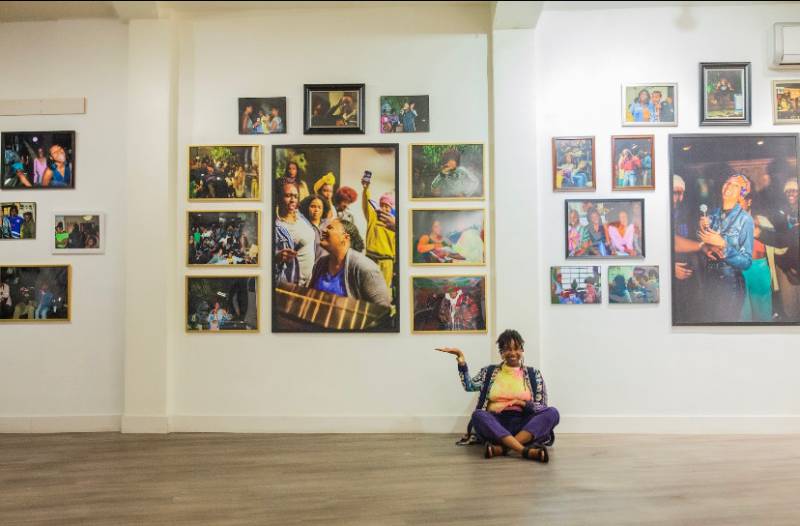
Within this past year, Oakstop started managing their fifth site, a huge building at 2323 Broadway, the former location of Impact Hub Oakland. Parham says the owners were struggling because of the pandemic, but wanted to keep the venue as an “Oakland-centric operation,” instead of allowing a national corporation to come in and do retail. The owners were familiar with Oakstop’s community connections and business model, so they reached out. A few weeks later, Oakstop was operating a shared working space and hosting creative events out of the venue.
Tayleur Crenshaw, co-founder of the event production company Gold Beams, hosts the Second Mondays open mic series out of that space. She says, laughing, “It’s crazy to have a person in your phonebook where you can say, ‘Hey, can I borrow your convention center for a sec?’”
Crenshaw is a member of the Oakstop Alliance— the organization’s nonprofit wing, which focuses a deeper level of membership that involves Crenshaw helping out with marketing and promotion. On a more serious note, she says, “They trust me, not only do they trust me, they respect me for what I do.”
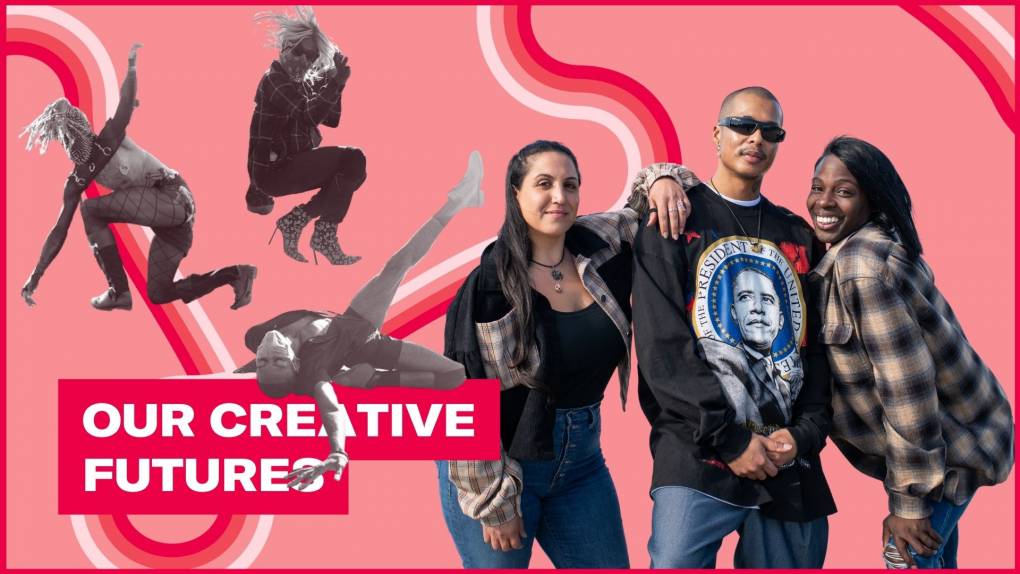
She says that during her events she reminds people in the crowd that they’re in a Black-operated and -managed space. “This connection that I have with Oakstop, you can have too,” says Crenshaw, “You’re part of this ecosystem.”
The sixth location is at 1740 Telegraph Avenue, where they operate out of two of the three stories in the building. Oakstop acquired it in 2021 after the owners were looking to bounce back from the lull of the pandemic and activate the space. The anchor tenant is now the youth wing of the Oakland LGBTQ Community Center.
“It means a lot,” says Center CEO Joe Hawkins. “For those of us who have been in Oakland long enough, they will recall that there once was a LGBTQ youth center right next door to that space, and that center was burned down twice.”
Now, the organization hosts events and uses office space in the building. “It’s just too ironic that we’d have a new youth center right next to a place that was pretty much demonized back in the ’90s, and now it’s reborn through Oakstop.”
When Hawkins told Parham about this connection, Hawkins recalls Parham saying, “Wow, so this is meant to be.”
Parham knows, as many do, that Oakland’s brand is its culture and its soul. “You can’t have Oakland without having a vibrant Black community,” Parham says. “We’re the soul of the city, particularly the artists.”
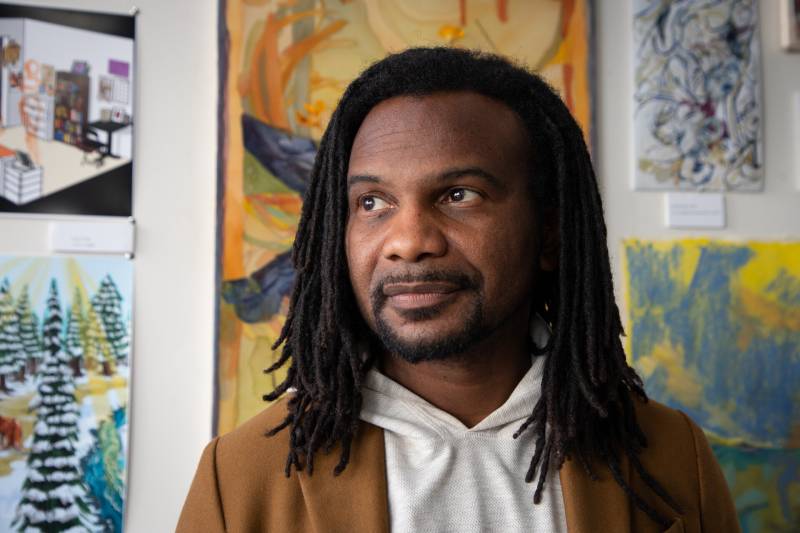
In order to preserve this history and ensure its future, Parham is focused on accessing land, creating shared working spaces, making stages for quality performances and decorating walls with eye-catching Afrocentrentic visual art.
But he believes the real gold is incubating the ideas of talented people. “That’s the bigger picture,” says Parham. “We have to make sure that that talent is not only cultivated and preserved, but harnessed for the benefit of everybody here.”
The potential next steps for Oakstop are wide open. Parham says they’re eying expansion to the east coast, maybe Baltimore. And he’s also looking to grow virtually by getting into the NFT space. But no matter how far it grows, at its core Oakstop is an organization that is simply using “space as a service.” And they’re doing so by centering Black folks.

Read more stories from Our Creative Futures here. Have something to share? Tell us about how the pandemic has impacted your art practice or community.

